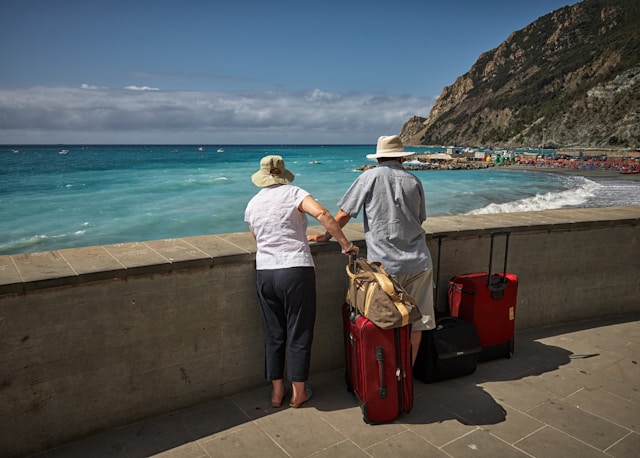
Retirement is a significant phase in many people’s lives, marking a transition from a busy work life to a more relaxed and leisurely lifestyle. Choosing an ideal retirement destination is crucial for enjoying this stage of life. This decision involves not only the geographical location but also various aspects such as cost of living, climate conditions, healthcare services, and personal interests. This article explores several different retirement locations and analyzes their pros and cons to help you find the best place for your retirement.
Let’s first look at the list from *U.S. News & World Report*, which identifies seven of the cheapest foreign countries to retire on a monthly budget of $1,000. Although the cost of living in these seven countries is indeed low, the visa requirements in some may not be suitable for retirees on a tight budget.
Malaysia:
- Characteristics: Low cost of living and high-quality, affordable healthcare, which is crucial for retirees.
- Visa Considerations:Malaysia has changed its MM2H visa to a tiered system, now requiring a deposit starting at $107,000. The S-MM2 visa requires monthly income of about $1,400 from Social Security or government pensions, or a deposit of $31,000.
- Conclusion: While you might manage to live on a $1,000 budget there, obtaining a visa and meeting Malaysia’s deposit requirements could be a challenge for many.
San Miguel de Allende, Mexico:
- Characteristics: Low cost of living, but this varies by location. It’s unlikely to achieve in popular areas, so you might need to find a roommate or live in less popular areas to save on housing.
- Visa Considerations: The visa requirements are quite high, with costs reaching at least $4,300 per month. Mexico does have a special regularization program that doesn’t require proof of income if you hold an expired tourist visa. However, you cannot assume that you will automatically receive a six-month tourist visa upon arrival.
- Conclusion:Mexico might be feasible for retirees with a $1,000 monthly budget in the cheapest locations, but obtaining a visa could be a larger issue.
Peru:
- Characteristics:Low cost of living, similar to Mexico, with beaches, mountains, ruins to explore, and a food paradise.
- Visa Considerations:Offers a retirement visa that requires a monthly income of only $1,000.
- Conclusion: Very suitable for retirees with a $1,000 monthly budget.
Panama:
- Characteristics: While the cost of living in Panama City and some coastal areas has risen, it remains very affordable compared to the U.S.
- Visa Considerations: Panama still offers its Pensionado visa, which requires a monthly income of $1,000. The advantage of this visa is that it leads directly to permanent residency, and you need to be at least 18 years old to apply.
- Conclusion: Panama is definitely a viable option for retirees on a tight budget, especially if you choose housing outside major metropolitan areas. Smaller cities and towns offer more affordable housing options.
Philippines:
- Characteristics:The Philippines is popular for its English-speaking population, low cost of living, and good private healthcare facilities.
- Visa Considerations: For their classic retirement visa, you need a monthly income of $800 and $10,000 in bank deposits. If you don’t have a pension, you can qualify by depositing $20,000 or buying at least $50,000 worth of real estate. Currently, we only see a 30-day visa extension available, totaling 59 days.
- Conclusion:The Philippines is suitable for low-budget retirees if you can manage the $10,000 deposit, and the low income requirement makes it a great country for retirees.
Portugal:
- Characteristics:With its low cost of living, safety, mild climate, excellent healthcare system, and close-knit international community, Portugal will always be a top choice for future retirement.
- Visa Considerations:Portugal’s D7 visa is a popular passive income visa, but you need a higher income to get approved and at least a year’s savings (about $9,840). The waiting time for obtaining a visa is long, potentially 9 months or more. Additionally, they recently changed the NH program, meaning if you haven’t applied before the end of 2023, you may no longer qualify unless rules change again.
- Conclusion:Housing costs have also risen, especially in popular cities like Porto and Lisbon. For retirees with a $1,000 budget, Portugal is tight, particularly considering the required income and taxes on pensions and Social Security. Living on a $1,000 monthly budget there could be very challenging.
Now let’s consider the video by Amelia and JP Abroa, “Cheapest Countries to Retire (for $1,000/Month or Less)”, discussing their recommended retirement destinations:
“Consider Albania as an alternative option. Albania offers long-term visas requiring an annual income of $1,250, or about $104 per month, or a deposit of $22,800. You can also combine annual income and deposit. The video recommends the northern region of Chang Rai or Phuket in Thailand. Although prices have increased due to recent legal changes, there are still many affordable housing options. If laws change, costs might decrease. So, is Thailand feasible for a $1,000 monthly budget? Maybe, if you can obtain a retirement visa.
Finally, Vietnam. Vietnam is one of the most affordable countries, but the standard tourist visa is only 30 days. They do offer a 90-day multiple-entry visa, but there’s no specific retirement visa. While visa extensions may be available, long-term residency as a retiree isn’t ideal. So, is a $1,000 monthly budget feasible in Vietnam? Not really. They don’t offer a suitable visa for retirees, so listing it doesn’t make sense.
However, Cambodia is a viable alternative. If you can’t get a visa for Thailand, Cambodia offers a retirement visa and is a good option. You just need to prove that you can support yourself with your pension. Although there’s no specific income requirement listed, as long as you can be self-sufficient, you qualify. Many people enjoy living in Cambodia and find it very affordable. It’s on our list for a visit later this year.
When you see these lists in news feeds, it’s important to critically examine them, especially the visa sections.”
This article references the following video source:
If you have more questions or need assistance with tax laws, feel free to leave a comment or add our official WeChat for professional tax planning, consulting, immigration, digital nomad support, and other specialized services.





